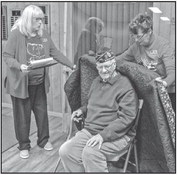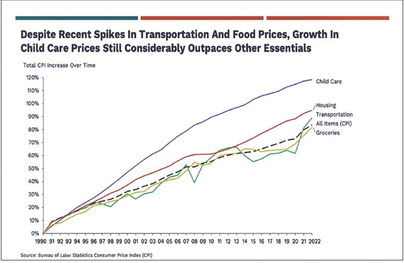Diversity resolution gets pushback


Diversity Affairs Committee members on Thursday told the Marathon County Board of Supervisors that a “Community for All” resolution was needed to address problems faced by minorities, but supervisors pushed back, including board vice chairman Craig McEwen, who said the aspirational statement would only prove “divisive” at this “politically charged time.”
Committee members led by Yee Leng Xiong, Wausau, argued the county fails to meet the board’s core values of “actively welcoming and valuing people with different perspectives and experiences” and falls short of a county comprehensive plan’s goal to be “an open, inclusive and diverse place to live and work.” The committee, relying on data from recent LIFE and ALICE reports, said:
n No more than half of residents consider the county to be tolerant and welcoming.
n Incidents of racial discrimination are on the rise.
n People of color are overrepresented in the county jail compared to their percentage of the local population.
n Black, Hispanic and Asian residents earn less family income than white residents.
Referencing other data sources, the committee members said students of color are more likely to be suspended than white students in local K-12 schools and that, statewide, minorities are more apt to be hospitalized for COVID- 19.
Committee members said diversity and inclusion were the key to economic success. They quoted a recent statement from the Wausau Chamber of Commerce noting that while the Wausau regional economy has stagnated, other metro areas are seeing success. “The Wausau region must embrace change in order to re-emerge as a growing economy,” the committee members said, quoting the chamber statement. “To attract talent from outside the region and state, the most important change is a shift towards an outwards looking perspective.”
In their resolution, committee members called on the full board to acknowledge that a “disparity of opportunity and systemic inequality exist across our nation and within our community” and to create a “community environment where all residents can celebrate and embrace their rich multicultural heritage without the fear of intimidation or hate-motivated violence.”
All of this was too much for some board members.
Supervisor Chris Dickinson, Stratford, questioned data found in the LIFE report, a biannual publication of the Marathon County United Way. He questioned how the report could, for example, accurately measure incidents of racial discrimination when nearly 93 percent of LIFE survey respondents were white. He said some of this data was flawed due to bad math.
He argued the committee was looking for racial inequities, rather than inequity in general. He noted that while 49 percent of the Wisconsin population is male, this sector of the population makes up a disproportionate 54 percent of COVID-19 cases, a fact glossed over by the committee.
There was pushback to this pushback. Supervisor William Harris, Wausau, said it was “ridiculous” for supervisor Dickinson to “nitpick” over LIFE report percentages when the nation, including Marathon County, is still dealing with a history of racial segregation. Harris said the county board needed to do for minorities in Marathon County what it did for rural residents when it last year passed a Rural Health Day resolution, bringing attention to the lack of medical resources available to people living outside urban areas. Harris said all disparities of opportunity need to be addressed.
Supervisor Jenifer Bizotto, Wausau, who is black, said the resolution would be an important signal to her whether to stay in Marathon County after she and her children have been subject to racial harassment. “Racism does exist here,” she lamented.
Prior to the county board meeting, four county residents criticized the resolution, saying that it represented various forms of government overreach. Bruce Bohr said he questioned the constitutionality of any program that seeks to not just provide equal opportunity, but equal outcomes among groups. Erin Crawford said the resolution’s “utopian” equity agenda would lead to totalitarianism. Gale Marshall, in a reference to Dr. Martin Luther King, said it would prove divisive to separate county residents into groups. Mary Thompson said taxpayers would lose their voice and freedom should the resolution’s socialism be adopted.
Committee member Bill Conway, Schofield, however, argued the resolution was moderate and non-threatening. He said the resolution did not endorse use of racial quotas or affirmative action, but did encourage the county to recruit the most qualified candidates for jobs from a larger area, which may include minorities, and to possibly hire people based on anonymous resumes without pictures, so that subconscious, implicit racial bias isn’t a factor.
Conway said the committee would not ask supervisors to vote on the “Community for All” resolution for at least two months. This will give supervisors time to check out the committee’s data and think through the issue, he said.
In related news, the county considered a resolution celebrating Black History Month. This resolution stimulated no questions or discussion.




